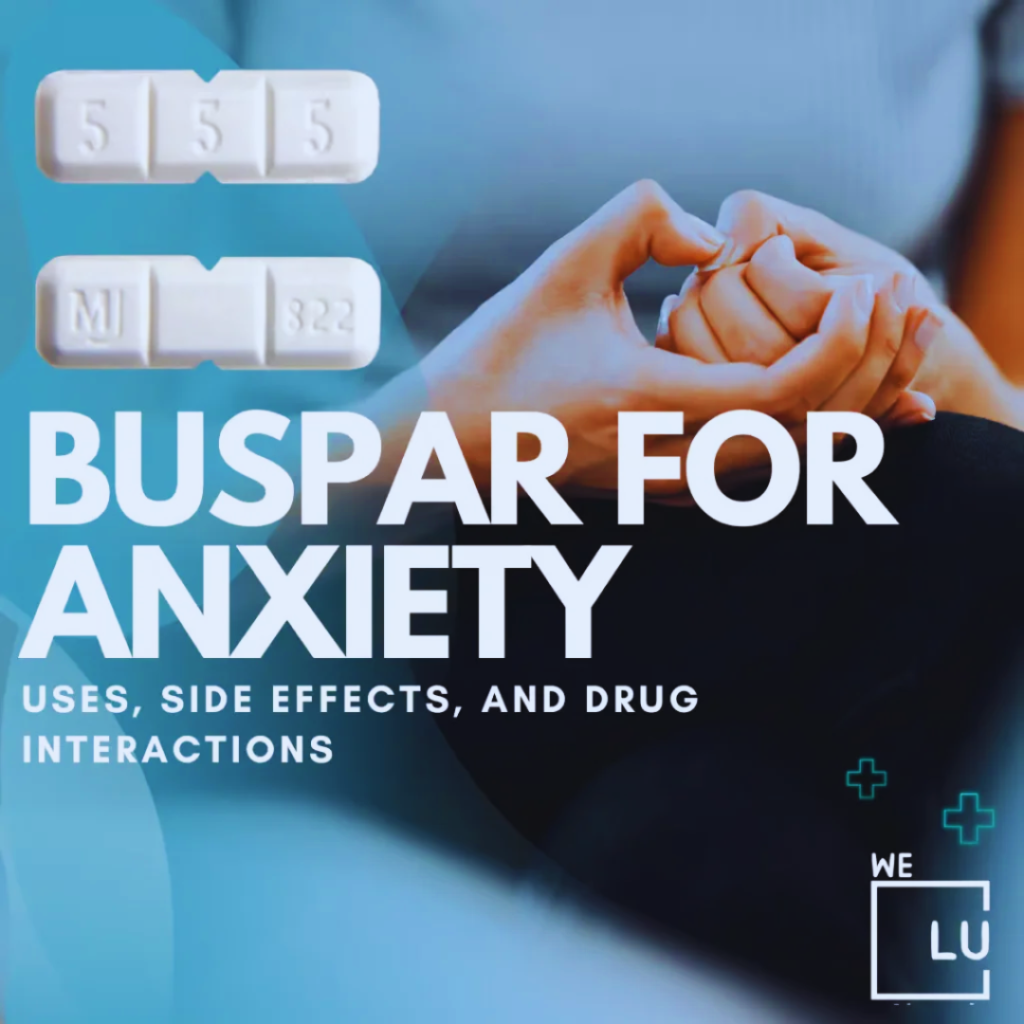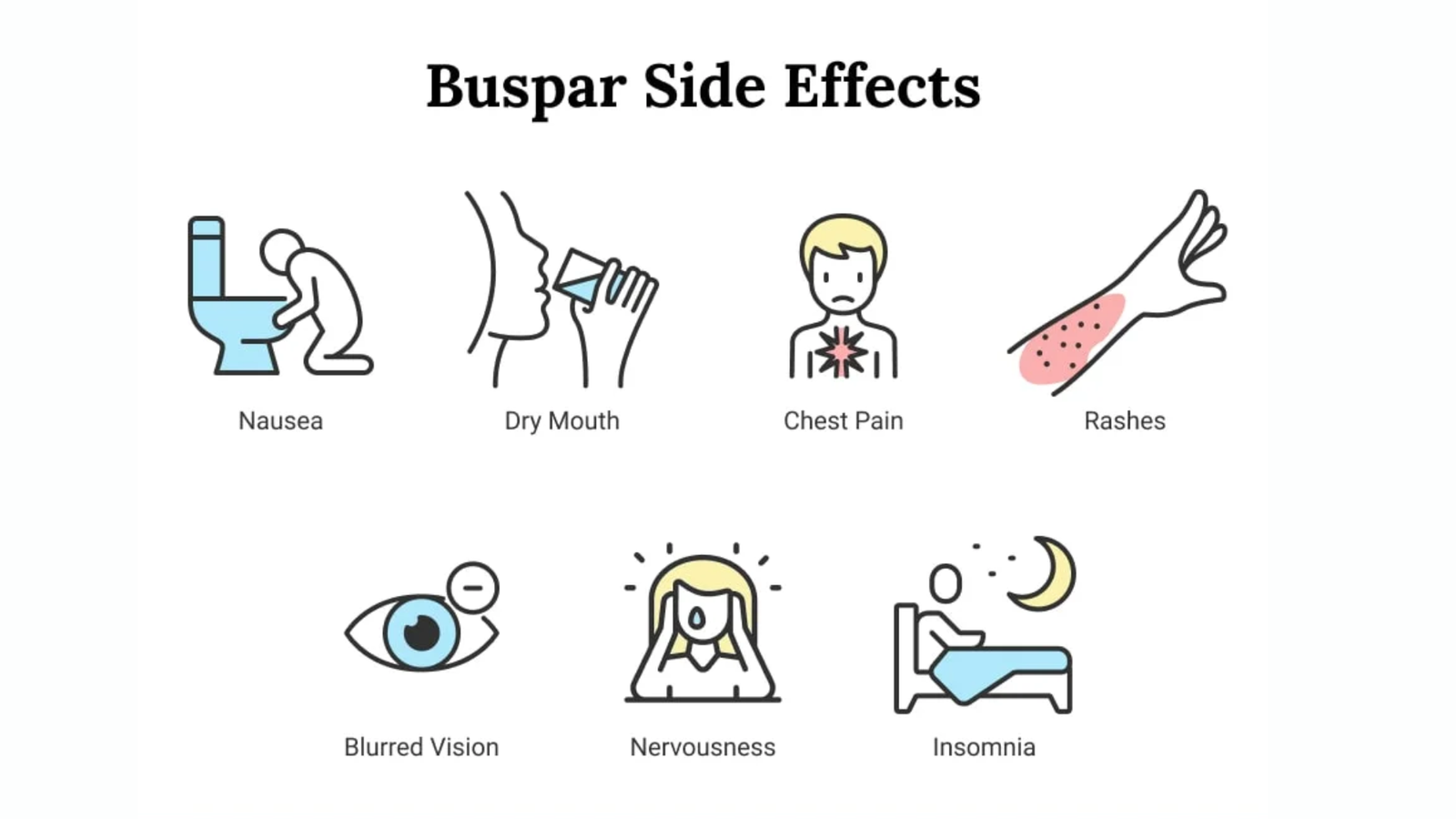
Buspar, once a brand name for the generic drug buspirone, was prescribed for anxiety but is now discontinued. The FDA (Food and Drug Administration) first approved this anti-anxiety medication in 1986. While Buspar itself is no longer on the market, people can still use buspirone, which has the same chemical makeup.
It’s important to understand that Buspar was discontinued due to the widespread availability of its generic form, not because of any effectiveness or safety issues. So, should you consider using buspar for anxiety? This medication can help people with anxiety feel more at ease, think more clearly, and reduce worry.
It might also alleviate irritability and other anxiety signs like trouble sleeping, a racing heart, and sweating. Since many people still use “Buspar” and “buspirone” interchangeably, I’ll use both terms in referring to this medicine in this article. I will cover how this medication works, its side effects, and how to incorporate it into your treatment plan.
Buspar for Anxiety: How Does It Work?

Buspar, also known as buspirone, is marketed under names like Vanspar and Dividose. It is an anxiolytic, a kind of medication designed to ease anxiety symptoms. The way buspirone works is somewhat complex. While it’s not an antidepressant itself, older studies hint that it might boost the effectiveness of antidepressant medications.
Your body and brain normally produce neurotransmitters, which are chemical messengers known as serotonin and dopamine. These neurotransmitters help control mood. When they are low, anxiety can increase. Buspirone interacts with specific serotonin and dopamine receptors in your brain, enhancing the brain’s sensitivity to them and potentially providing therapeutic benefits.
Buspar offers a calming effect for anxiety but treats anxiety differently than benzodiazepines such as Valium and Xanax. Benzodiazepines are short-term solutions. Unlike these medications, Buspar doesn’t act as a sedative or muscle relaxer, and it won’t cloud your thinking or make you sleepy.
Is Buspar Good for Anxiety?

Buspirone has often been effective for treating anxiety and can serve as a good alternative to habit-forming medications such as Xanax. However, it’s typically considered a second-line treatment, and there might be better long-term options, such as SSRIs, for managing your anxiety symptoms.
The FDA has approved buspirone for treating generalized anxiety disorder (GAD), a health condition characterized by persistent and intense worry. Unlike normal anxiety, GAD requires an official diagnosis, which usually involves individuals experiencing severe worry daily for at least six months.
While buspirone can alleviate GAD symptoms, according to some research, it may not be as effective for other anxiety disorders. Doctors also prescribe buspirone for major depressive disorder (MDD), even though this isn’t its original purpose. This off-label use is supported by scientific research, showing its potential benefits beyond its initial intent.
Buspirone works best when combined with other SSRI antidepressants. Therefore, if you are already on an SSRI and need additional support for depression, buspirone could be worth considering. Always consult your healthcare provider to determine if it is the correct fit for you.
Buspar Dosage for Anxiety
Before starting buspirone, read the manufacturer’s leaflet included in your package. This leaflet provides detailed information about buspirone and lists potential side effects you might experience. Follow your doctor’s instructions precisely when taking buspirone tablets.
The starting dose of buspar for anxiety is probably a 5 mg tablet, taken two or three times daily.
You need to swallow the tablets with water. You can also take the medicine with food. Doctors often begin with low Buspar doses for anxiety and slowly increase it. It might take several weeks to find the most effective dose for you. Taking your dosages at the same time daily can help you remember them.
You can choose to take buspirone either before or after meals, but be consistent with your choice. Stick to taking all dosages either before or after meals. The National Alliance on Mental Illness advises against driving a car or operating heavy machinery until you know how buspirone affects you, as it may cause fatigue or dizziness.
Avoid drinking alcohol as it can worsen these signs. It might take 3 to 4 weeks to experience the benefits of buspirone, so don’t stop taking it without consulting your doctor. If you forget to take a dose, take it as soon as you remember. However, if it’s nearly time for your next dose, just skip the missed one and stick to your regular schedule.
Never double up to make up for a missed dosage. Avoid consuming large quantities of grapefruit juice while taking buspirone. Grapefruit juice can disrupt the enzymes in your digestive system that process buspirone. This can lead to your body soaking up more of the drug than intended, increasing the danger of side effects.
Side Effects of Buspar for Anxiety
Buspirone side effects fall into two groups: common ones and less common but potentially serious ones. Not everyone will have side effects, but it’s crucial to be aware that they can happen when you take buspirone.
Common Side Effects

When starting BuSpar, you might experience a variety of side effects, particularly in the first few weeks. Some of the most common ones are:
- Feeling dizzy or lightheaded
- Excessive sweating
- Nausea
- Headaches
- Confusion
- Increased excitement
- Difficulty sleeping
- Weakness or fatigue
Dizziness is one of the most frequent side effects, affecting over 10% of buspirone users. However, this sensation often decreases after a few weeks of use.
Serious Side Effects
Buspirone can lead to rare but potentially serious side effects. These include:
- Heart-related issues, like a heart attack or heart failure
- Pain or pressure in the eyes
- Pelvic inflammatory disease
- Irregularities with the thyroid function
- Hallucinations
- Thoughts of self-harm or suicide
If you notice any of these symptoms after using buspirone, promptly reach out for medical help and inform the doctor who prescribed it. Buspar is generally less likely to cause drowsiness compared to other anxiety medicines.
However, you should still be careful when using machinery, driving, or engaging in risky activities while on Buspar. The chances of becoming physically or mentally dependent on BuSpar are minimal, and the likelihood of an overdose is low.
The Bottom Line on Buspar for Anxiety
Buspar is a discontinued form of buspirone, which is a medication used to treat anxiety disorders. If your doctor has prescribed buspar for anxiety, make sure to follow their instructions closely.
If you don’t notice an improvement in your anxiety symptoms after many weeks, it might be a good idea to discuss with your doctor whether a different medicine could be more effective for you.
Reach out to a doctor immediately if you overdose on buspar or if you experience an allergic reaction or consistent or severe side effects. While buspirone typically doesn’t worsen anxiety, skipping doses or stopping the medicine suddenly can lead to negative effects.
